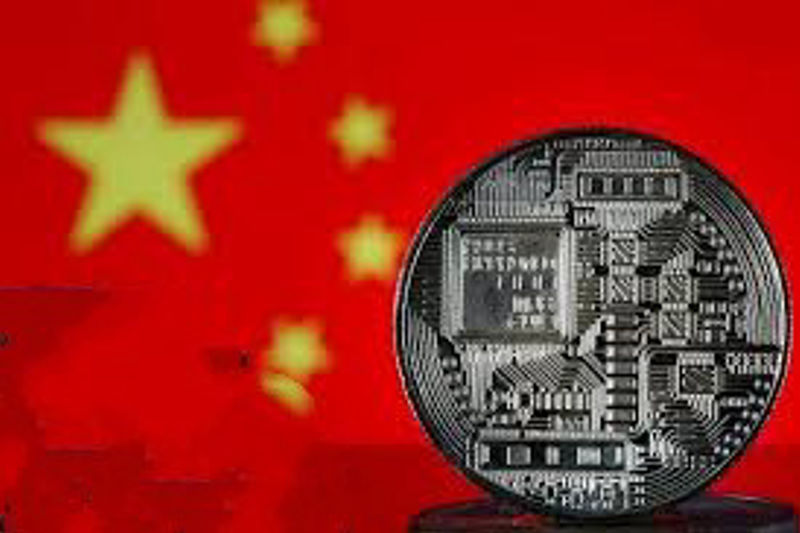Does China Have Digital Money? Will It Become the Independent Seller Currency in the Future.
Introduction
The worldwide financial scene is changing due to the emergence of digital currencies, and China is leading the way with its Digital Currency Electronic Payment (DCEP), also known as the Digital Yuan (eCNY). As the world moves toward cashless economies, many wonder: Does China have digital money? And more importantly, could the Digital Yuan become an independent seller currency in international trade, reducing reliance on the US dollar?
This article explores China’s digital currency, its potential to challenge the dollardominated financial system, and whether it could emerge as a leading medium for global transactions.
What Is China’s Digital Currency?
China’s Digital Yuan (eCNY), a central bank digital currency (CBDC), is issued by the People’s Bank of China (PBOC). The Digital Yuan is a government-backed, centralized digital currency that is intended to take the role of actual cash in circulation, in contrast to decentralized cryptocurrencies like Bitcoin.
Key Features of the Digital Yuan:
Legal Tender: The eCNY has the same status as physical yuan (RMB).
Controlled by PBOC: China’s central bank has complete control over it, in contrast to cryptocurrencies.
Offline Transactions: Supports payments without internet access.
Programmable Money: Allows smart contracts for automated transactions.
Traceable Transactions: Enhances antimoney laundering (AML) measures.
China has already rolled out pilot programs in major cities like Beijing, Shanghai, and Shenzhen, with millions of users and businesses adopting it for daily transactions.
What Motivates China to Promote Digital Currency?
For several strategic reasons, China is actively developing a digital yuan:
1. Lessening Reliance on US Currency
The US dollar dominates global trade, giving the US significant financial leverage.
Bypass SWIFT System: Reduce reliance on UScontrolled payment networks.
Internationalize the Yuan: Encourage more countries to use RMB in trade settlements.
Challenge Dollar Hegemony: Offer an alternative in global transactions.
2. Enhancing Financial Control & Surveillance
The Digital Yuan can be used by the Chinese government for the following purposes:
Monitor Transactions in RealTime: Combat corruption and illegal financial activities.
Implement Monetary Policies More Efficiently: Directly influence money flow.
3. Boosting Digital Economy & Fintech Leadership
China wants to lead in blockchain and digital payment innovations, competing with private payment giants like Alipay and WeChat Pay while maintaining state control.
Can the Digital Yuan Become an Independent Seller Currency?
The term “independent seller currency” refers to a currency widely accepted in global trade without relying on intermediary currencies like the US dollar. For the Digital Yuan to achieve this status, several factors must align:
1. Global Adoption in Trade Settlements
China is already promoting yuanbased trade deals with countries in:
Africa: Oil and mineral trades settled in RMB.
Middle East: Discussions with Saudi Arabia for oil transactions in yuan.
BRICS Nations: Push for dedollarization among emerging economies.
If more nations accept eCNY for crossborder transactions, it could weaken the dollar’s dominance.
2. Integration with Other CBDCs
China is collaborating with other central banks on crossborder digital currency systems, such as:
mBridge Project: A multiCBDC platform involving Hong Kong, Thailand, and UAE.
The Belt and Road Initiative (BRI) is promoting the use of digital yuan in the financing of infrastructure.
3. Overcoming Trust & Regulatory Barriers
The Digital Yuan has drawbacks despite its benefits:
Privacy Concerns: Many nations distrust China’s surveillance capabilities.
Geopolitical Resistance: The US and EU may block eCNY’s global expansion.
Capital Controls: China’s strict financial regulations limit yuan convertibility.
Although it is unlikely to happen right away, the Digital Yuan could:
✔ Grow as a Regional Trade Currency (especially in Asia and Africa).
✔ Complement Other CBDCs in a multicurrency global system.
✔ Accelerate DeDollarization if more countries seek alternatives.
Nonetheless, the US dollar is still firmly rooted in:
Global Reserves (60% of central bank holdings).
Commodity Pricing (Oil, Gold).
Financial Markets (Bonds, Forex).
Liberalize its financial markets.
Increase yuan convertibility.
Build stronger international trust.
Conclusion: The Future of China’s Digital Money
A daring step toward financial innovation and worldwide influence is China’s Digital Yuan. While it may not immediately dethrone the US dollar, it is positioning itself as a viable alternative in international trade, especially in regions aligned with China’s economic policies.
The key question—”Will the Digital Yuan become an independent seller currency?”—depends on geopolitical shifts, global trust, and China’s ability to integrate its digital money into the world economy. One thing is certain: the era of digital currencies is here, and China is leading the charge.
As more nations explore CBDCs, the financial power balance could shift, making the eCNY a major player in the future of money.
Final Thoughts
In China, the Digital Yuan is a legitimate currency that is expanding swiftly.
In some trading networks, it might lessen reliance on the dollar.
Full global adoption faces political and economic hurdles.
The next decade will reveal whether the Digital Yuan becomes the independent seller currency of the future or remains a regional powerhouse in the digital economy.


